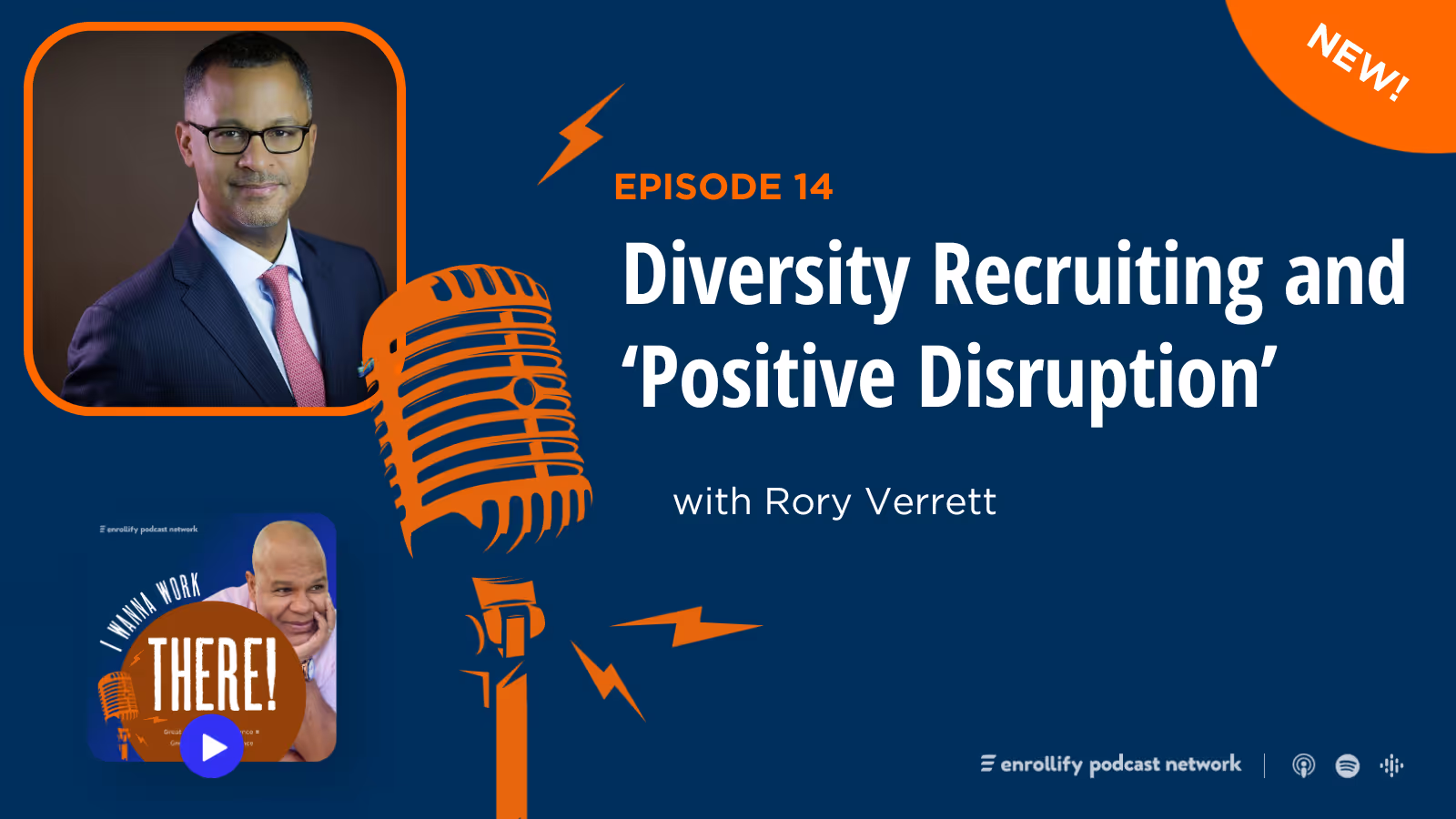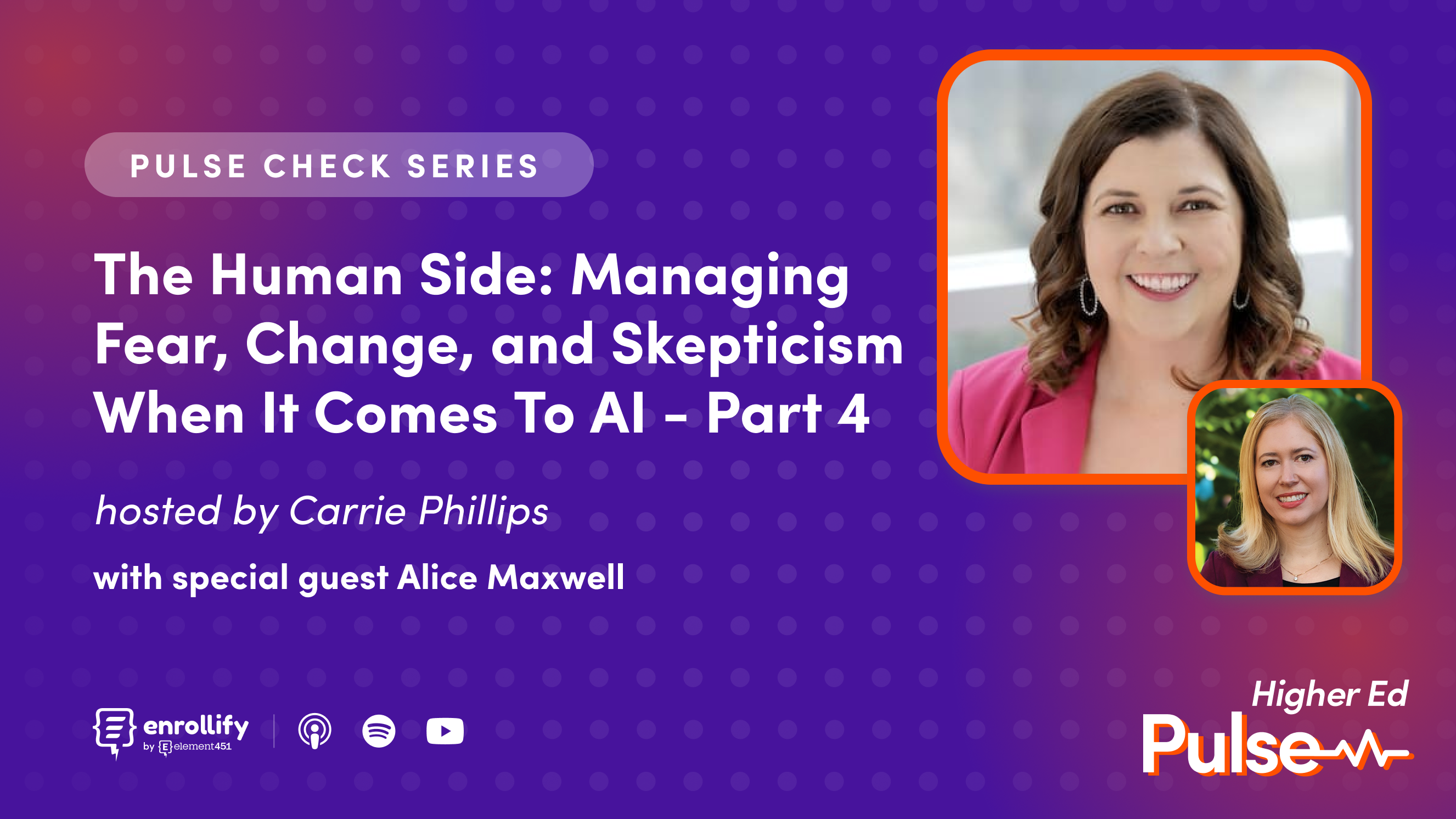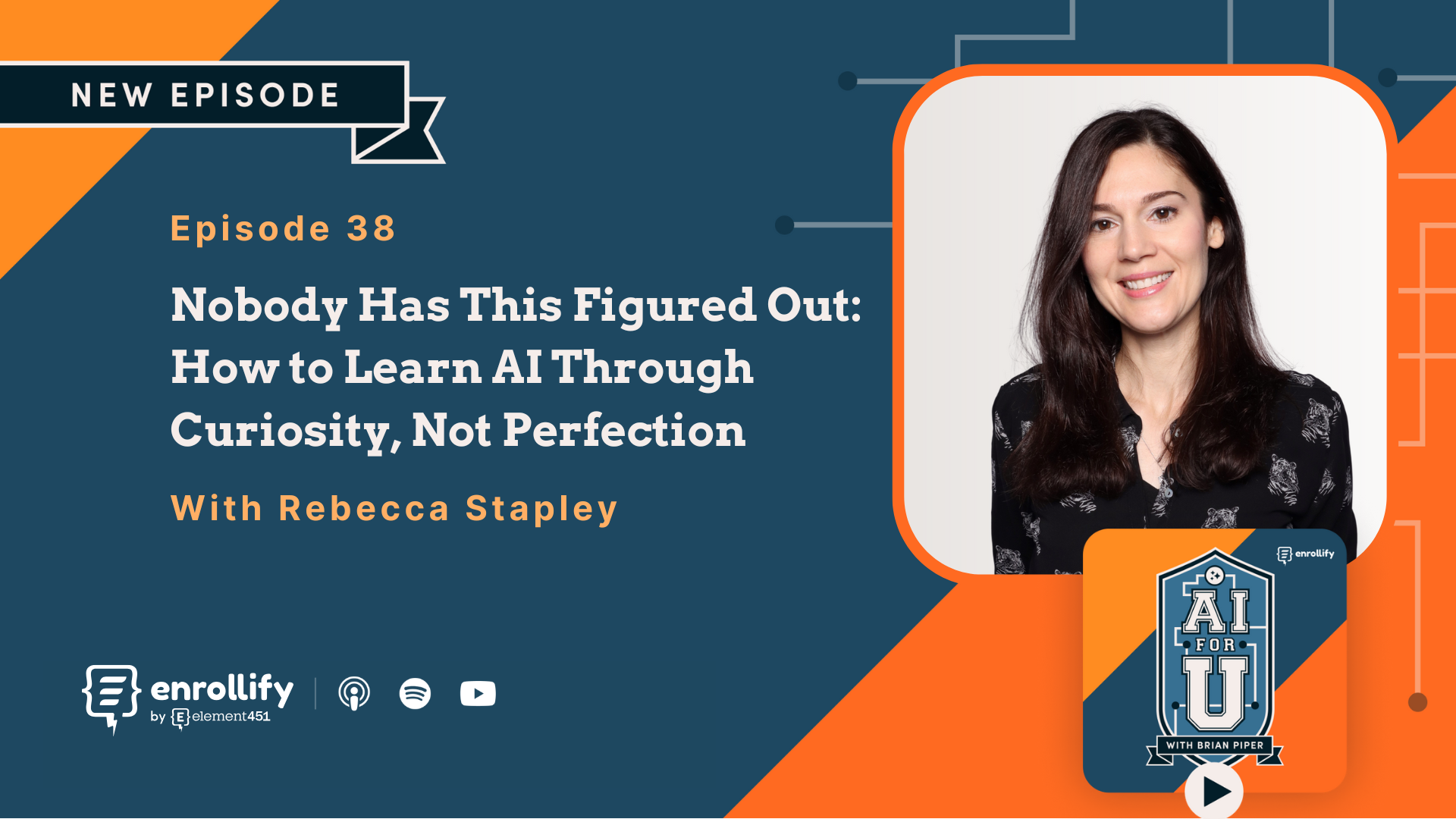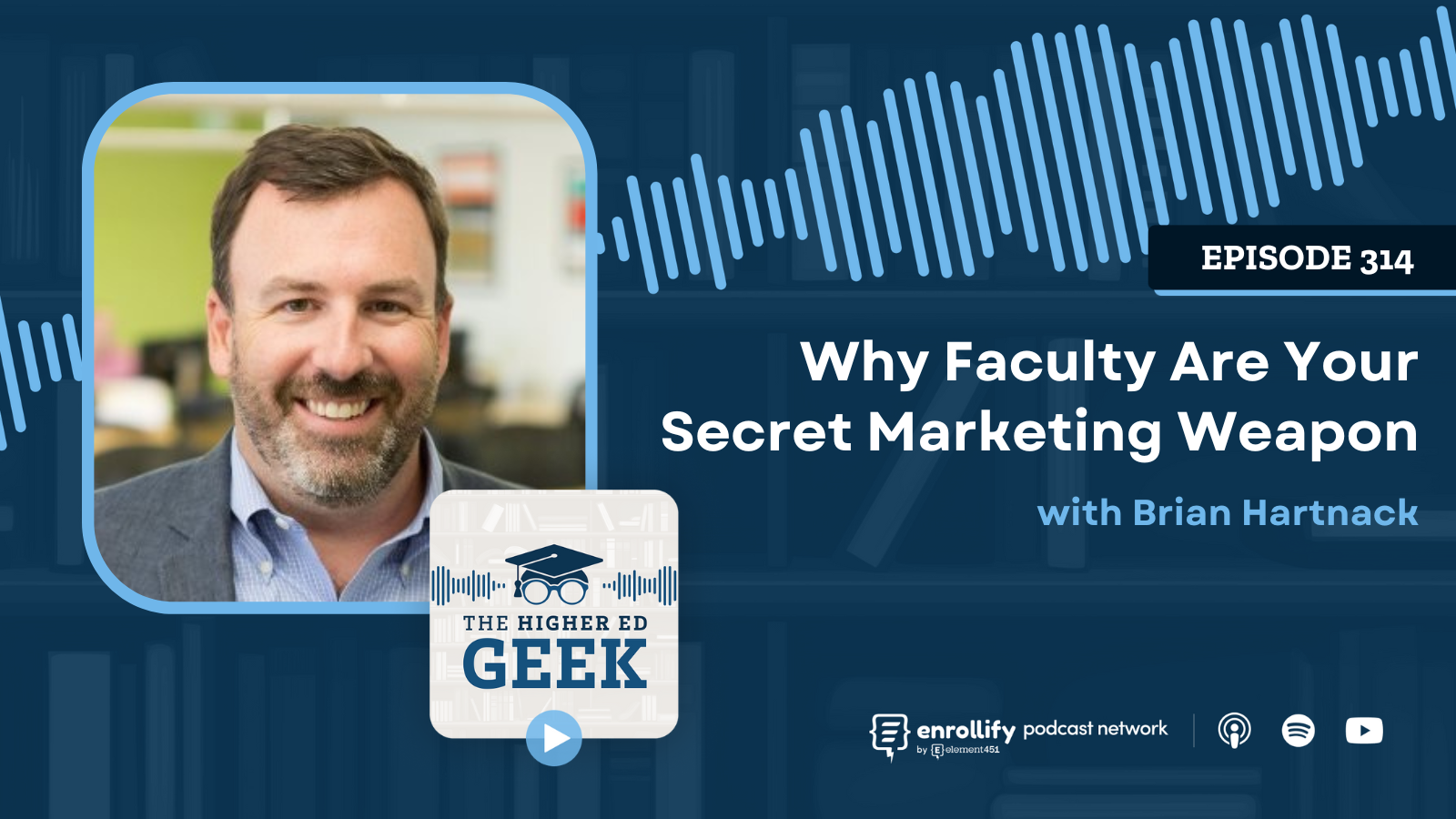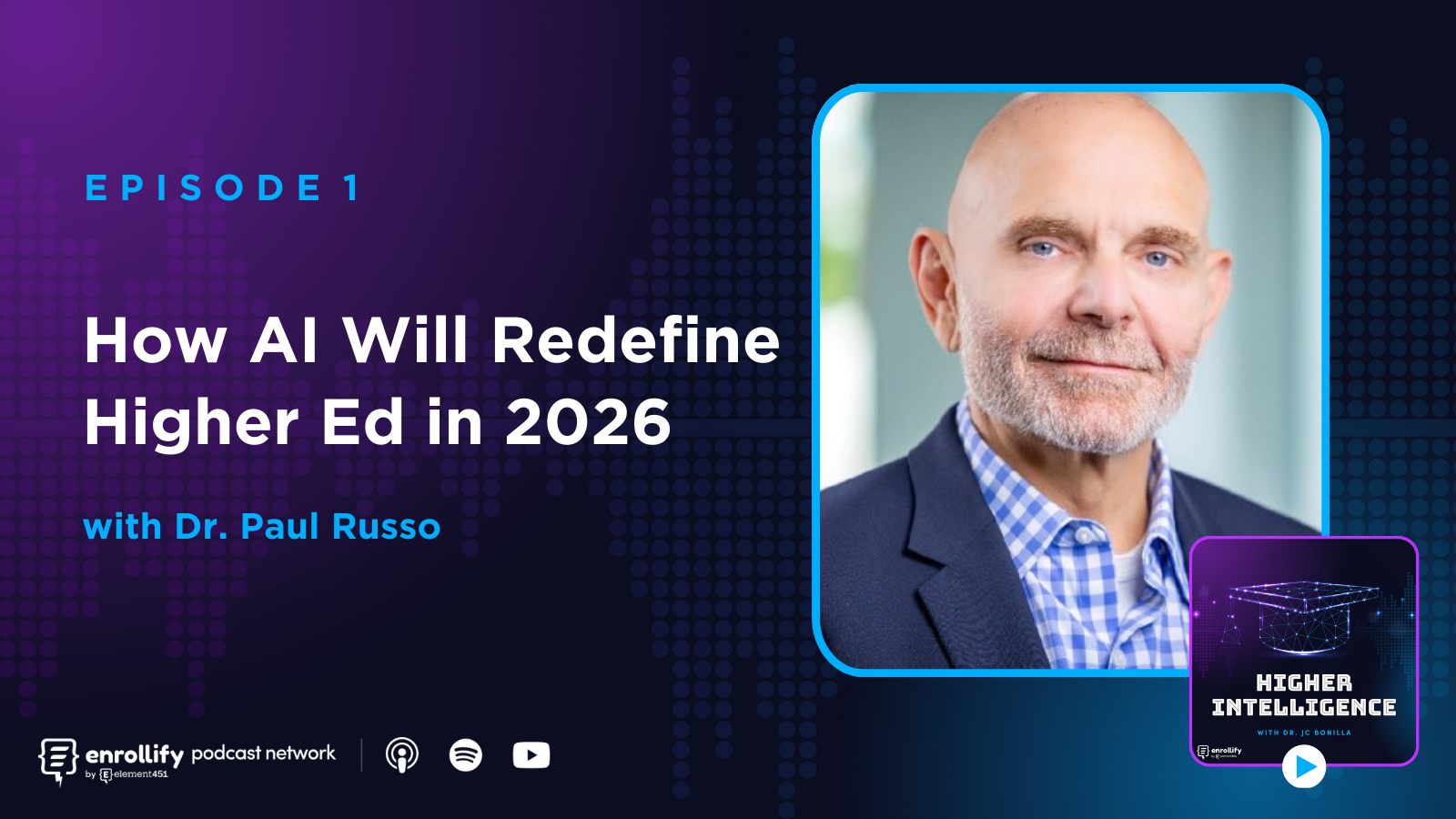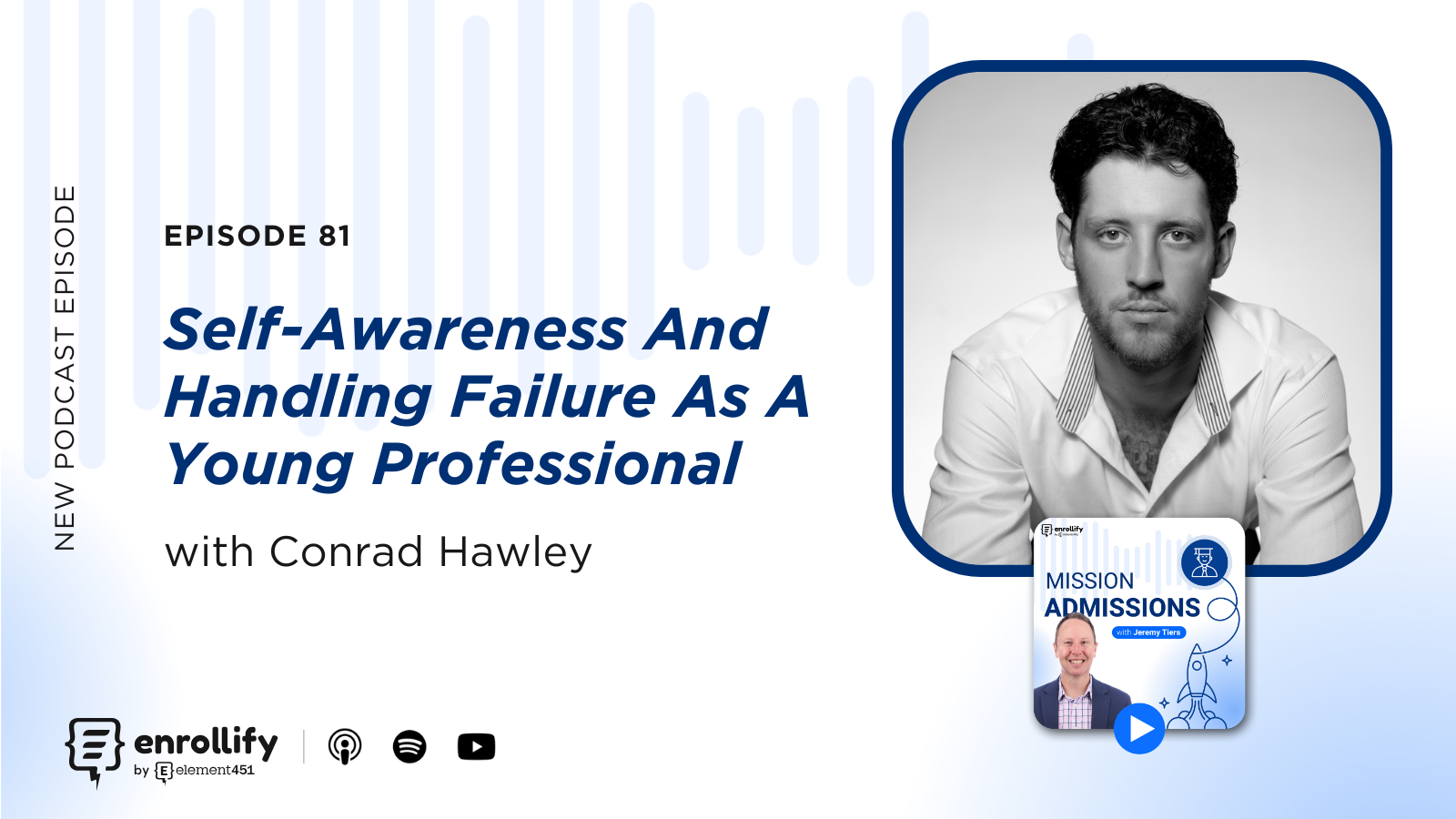About the Episode
Diversity recruiting goes well beyond finding candidates who are simply different. It’s about identifying and hiring talent that will change the trajectory of your college or university in a productive way. Diversity recruiting both uplifts candidates in the minority while broadening the talent in the majority. The “positive disruption” of attracting and retaining diverse talent is what Rory Verrett’s work is all about.
A diversity recruiter and executive coach, Rory visits “I Wanna Work There!” to talk about how he identified the need for diversity recruiting in the executive space, why diversity recruiting is so important to the health of organizations, and why he decided to write his book, “The Pomegranate Principle: The Best Practices in Diversity Recruiting.”
Key Takeaways
- Diversity Recruiting Enhances Innovation: Thought diversity fuels innovation by bringing fresh ideas, challenging norms, and positively disrupting established processes.
- Narrative-Driven Recruitment: A strong employer narrative tailored to candidate values and career aspirations can significantly improve talent acquisition outcomes.
- Executive Search in Higher Ed: Higher ed institutions need to adopt a proactive, candidate-focused approach to executive recruiting, treating it as both a marketing and strategic function.
Episode Summary
How Did Rory Verrett Develop His Passion for Diversity Recruiting?
Rory Verrett's commitment to diversity recruiting stems from personal experiences navigating the corporate world without the advantage of a structured support system or the “soft skills” that are essential for leadership roles. As a first-generation corporate professional, he found himself informally mentoring peers to bridge knowledge gaps in navigating career pathways. These early experiences ignited his passion for diversity recruiting, leading him to establish Protege Search and later author The Pomegranate Principle, a guide on best practices for diversity recruitment. Rory's goal has remained steadfast: to empower organizations to build more inclusive, successful teams and help underrepresented candidates better navigate executive recruitment.
How Does Diversity Recruiting Challenge Higher Ed’s Risk-Averse Culture?
Rory explains that many minority candidates approach career progression with a “scarcity mentality” due to a lack of access to mentoring and support networks, causing them to prioritize job security over creativity. In higher education, where roles are traditionally stable and highly valued, this scarcity mentality often fuels a risk-averse culture that limits collaboration and innovation. Through diversity recruiting, institutions can disrupt this culture by bringing in diverse voices that challenge the status quo and introduce new problem-solving approaches. By embracing diversity, higher ed institutions can mitigate groupthink, drive innovation, and adapt more flexibly to changes in student and community needs.
What Role Does Thought Diversity Play in Building a Compelling Employer Brand?
Beyond demographic diversity, Rory highlights the value of thought diversity—drawing in candidates who offer unique perspectives and insights that drive an organization forward. When higher ed institutions prioritize thought diversity, they bring in professionals who challenge traditional practices and encourage growth. Rory explains that diversity recruiting can act as a “safe risk,” as it enables institutions to integrate new ideas without the fear of negative repercussions. By valuing varied backgrounds and experiences, institutions can cultivate a workplace culture that not only supports diversity but also showcases their institution as progressive, adaptable, and deeply committed to impactful learning and innovation.
How Can Colleges and Universities Enhance Their Executive Recruitment Strategies?
Rory stresses that for higher ed institutions to attract top executive talent, they must create a compelling narrative that resonates with candidates’ personal and professional goals. Rather than focusing solely on institutional prestige, recruiters should showcase benefits that matter to candidates, such as work-life balance, job stability, and opportunities for career growth. Additionally, colleges should consider the long-term career journey they can offer and prioritize selecting candidates who are likely to thrive within the institution’s unique environment. By focusing on these areas, institutions can not only attract high-quality candidates but also retain them, ultimately fostering a workplace culture that aligns with the university’s mission.
Rory E. Verrett is the founder of Protégé Search, a diversity executive search and leadership development firm. He is a trailblazing talent strategist who brings 20 years of experience in talent management, diversity and inclusion, executive search, and public affairs to mission-critical client projects.
Rory has shared his innovative insights on diversity and inclusion with Fortune, Forbes, and The New York Times. He has served as a moderator and speaker at Harvard University, the Stanford University Graduate School of Business, Duke University’s Fuqua School of Business and the Wharton School at the University of Pennsylvania. Rory has also testified before the United States Congress as a national expert on diversity and inclusion in corporate America. He is the host of the award-winning Protégé Podcast, a career advice show focused on the career journeys of diverse professionals and leaders. Rory is a former trustee of Howard University and is the current president of the Harvard Law Black Alumni Association.
A graduate of Harvard Law School and Howard University, Rory is a former leader in the diversity practices of two global executive search firms (Spencer Stuart and Russell Reynolds Associates), and the first-ever head of talent management at the National Football League.







